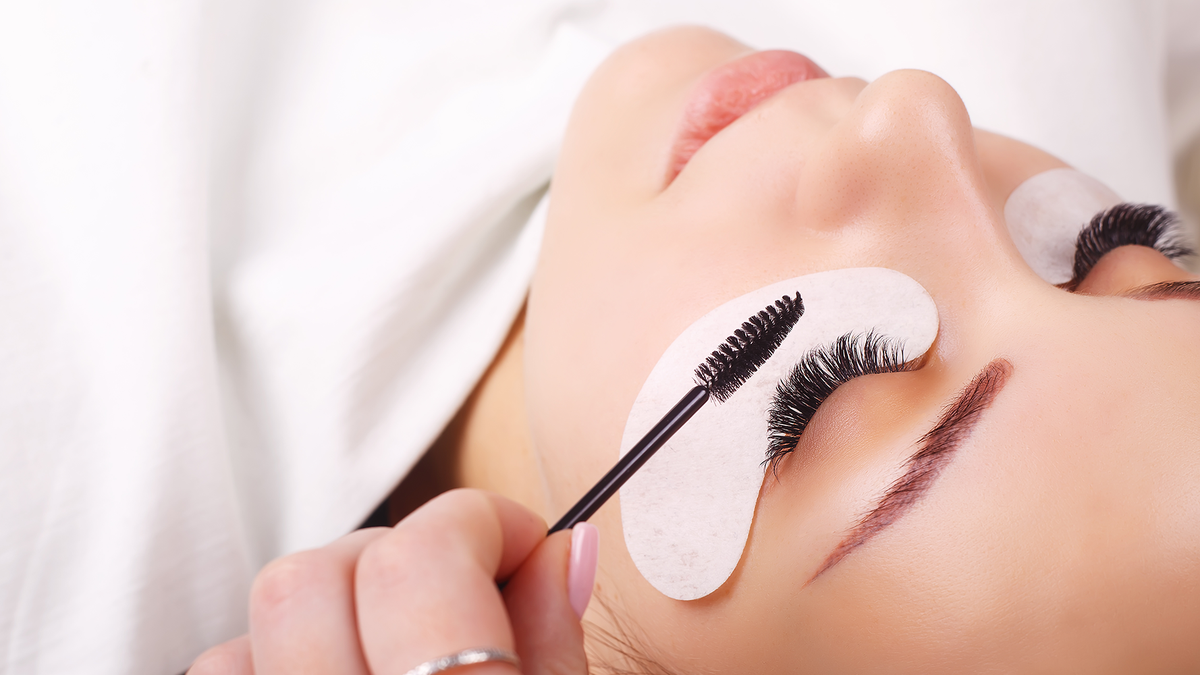How North Korean eyelashes make their way to West as made in China

Millions of dollars in sales of North Korean false eyelashes - marketed in beauty stores around the world as "made in China" - helped drive a recovery in the secretive state's exports last year, Azernews reports via Reuters.
The processing and packaging of North Korean false eyelashes - openly conducted in neighbouring China, the country's largest trading partner - gives Kim Jong Un's regime a way to skirt international sanctions, providing a vital source of foreign currency.
Reuters spoke to 20 people - including 15 in the eyelash industry, as well as trade lawyers and experts on North Korea's economy - who described a system in which China-based firms import semi-finished products from North Korea, which are then completed and packaged as Chinese.
The finished eyelashes are then exported to markets including the West, Japan and South Korea, according to eight people who work for companies directly involved in the trade.
Some of the people spoke on condition that only their last names be used because they were not authorised to talk to the media.
North Korea has long been a major exporter of hair products like wigs and false lashes, which enable people to avoid the hassle of mascara and to achieve a dramatic look. But exports tumbled during the COVID-19 pandemic, when North Korea slammed its borders tightly shut.
Significant trade in North Korea-made lashes via China resumed in 2023, according to customs documents and four people in the industry.
Chinese customs data showed that North Korea's exports to China more than doubled in 2023, when borders reopened. China is the destination for nearly all of North Korea's declared exports.
Wigs and eyelashes comprised almost 60% of declared North Korean exports to China last year. In total, North Korea exported 1,680 tonnes of false eyelashes, beards and wigs to China in 2023, worth around $167 million.
In 2019, when prices were lower, it exported 1,829 tonnes at a value of just $31.1 million.
The US State Department and international experts estimate that North Korea seizes up to 90% of foreign income generated by its citizens, many of whom live in poverty. Reuters was unable to determine how much of the revenue from eyelash sales flowed back to Kim's government, or how it was used.
"We have to assume that ... millions of dollars every month that North Korea is making through this eyelash trade is being used for the Kim Jong Un regime," said Seoul-based sanctions lawyer Shin Tong-chan. His view was corroborated by two other international trade experts, though none provided specific evidence.
Since 2006, the United Nations Security Council has sought to stall Pyongyang's nuclear weapons programme through nearly a dozen sanctions resolutions that restrict its ability to trade products such as coal, textiles and oil. It also imposed strict restrictions on North Koreans working abroad.
Sanctions passed by the Security Council are supposed to be enforced by UN member states - all of whom are legally bound to implement them - using local legislation.
But there is no direct ban on hair products, so trading false eyelashes from North Korea does not necessarily violate international law, three sanctions experts told Reuters.
Reuters presented its findings to the Chinese Foreign Ministry, which said it was "not aware of the circumstances" described but that any alleged violations of UN sanctions are "completely without foundation".
The United States has since 2008 separately expanded its own measures against North Korea, which include sanctions on any company stocking or selling products whose sales fund the Kim regime: a restriction that also applies to non-American firms using the US dollar.
But there are practical and political limitations on Washington's ability to enforce such sanctions unilaterally on entities such as foreign businesses that have minimal exposure to the US financial system and don't sell primarily to American clients, according to two international sanctions lawyers.
Chinese manufacturers began working with North Korean eyelash plants in the early 2000s, according to three Chinese factory managers. They said they prize the country's labour force for its low cost and the high quality of the eyelashes.
About 80% eyelash factories of China's Pingdu city purchase or process false eyelash raw materials and semi-finished products from North Korea, according to a 2023 estimate published by Kali, a Chinese manufacturer of eyelash boxes, on its website.
Pingdu's government says the town of roughly 1.2 million accounts for 70% of global output of false eyelashes, which are often made of synthetic fibres but may also be created from mink fur or human hair.
---
Follow us on Twitter @AzerNewsAz
Here we are to serve you with news right now. It does not cost much, but worth your attention.
Choose to support open, independent, quality journalism and subscribe on a monthly basis.
By subscribing to our online newspaper, you can have full digital access to all news, analysis, and much more.
You can also follow AzerNEWS on Twitter @AzerNewsAz or Facebook @AzerNewsNewspaper
Thank you!
